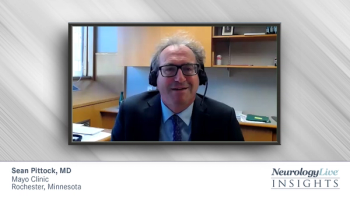
This discussion covers the factors leading to relapses and recurring attacks in NMOSD, how disease severity and relapses contribute to disability accumulation, and their impact on patients' quality of life.

This discussion covers the factors leading to relapses and recurring attacks in NMOSD, how disease severity and relapses contribute to disability accumulation, and their impact on patients' quality of life.

This discussion examines how disability accumulation may be influenced by the use of less efficacious treatments, compares the efficacy of novel and traditional NMOSD agents in clinical practice, and reviews relapse rates associated with FDA-approved treatments versus off-label and older therapies.

This discussion examines the 138-week data on ravulizumab for NMOSD, focusing on long-term relapse rates, and share practical tips for effective NMOSD management in clinical settings.

Jacqueline Nicholas, MD, MPH, discusses the evolution of NMOSD pathophysiology understanding and the critical role of the complement system in its development.

Jacqueline Nicholas, MD, MPH, discusses available treatment options for NMOSD, including management of acute phases, relapses, and symptom control, as well as how both traditional and newer therapies address different aspects of NMOSD pathophysiology.

Jacqueline Nicholas, MD MPH discusses the importance of targeting NMOSD through different mechanisms of action and highlight key points for communicating with neurologists about the role of the complement system in the disease.

Sean Pittock, MD, discusses how complement inhibitors are positioned in the treatment landscape of neuromyelitis optica spectrum disorder, providing an overview of ravulizumab, the most recent FDA-approved treatment, including its development rationale, half-life, dosing regimen, and new signals from the recently presented 138-week long-term extension data at EAN 2024.

Sean Pittock, MD, discusses the risks of meningococcal infection associated with eculizumab and ravulizumab in phase 3 and long-term extension studies, as well as his interpretation of the concerns surrounding meningococcal vaccination and its potential impact on relapse activity.

Sean Pittock, MD, discusses the long-term efficacy and safety results of other FDA-approved treatments for neuromyelitis optica spectrum disorder, including satralizumab, inebilizumab, and the off-label use of rituximab.

Sean Pittock, MD, discusses how he utilizes long-term data in his clinical practice for treating neuromyelitis optica spectrum disorder and offers advice for physicians on incorporating these insights into patient care.